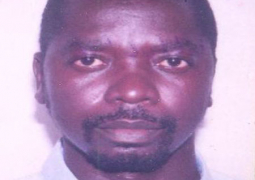Uganda under museveni,
Olive Kobusingye,
Authorhouse, 2011
Ugandan strong man Yoweri Museveni has written many books about his bush war and regime in Uganda thus wisely blowing his own trumpet. This is why this new book by a medical doctor who is related to Uganda opposition leader Kizeiza Besigye, should offer a counter point to the narrative of Uganda under Museveni since January 1986, when his rebels entered Kampala to oust the hated Milton Obote and his Acholi henchmen.
Uganda has always had two problems from independence in 1962 to 1986: authoritarian rulers and civil wars. Obote, Idi Amin, Okello were all very despised rulers for the right reason that they brought insecurity to their people and also took pleasure in killing opponents. It was Museveni who finally offered hope to pacifying this beautiful country once called the ‘Pearl of Africa’. When he overran Kampala in 1986, people inside and outside of the country breathed a sigh of relief that finally, peace will come.
And peace did come indeed. Although at a cost. And this is the premise of this book: that Museveni has brought peace and some stability and economic growth to Uganda, but at a great cost to liberties and freedoms of human beings. The author catalogues the alleged abuses of rights under Museveni, including the hard times that the opposition under Besigye under go, violations of press freedoms and so on.
Yet, here the author is really treading on quicksand: under Museveni Uganda has improved dramatically its human rights record compared to what obtained under Idi Amin, or Obote. This is why sometimes the perceptive reader should wonder if the author is not out to settle scores with Museveni than to give a dispassionate picture of what obtains in the country. Museveni’s National Resistance Movement came to power in a wave of popular acclaim as saviours, and judging by the results of the just held elections, one can assume that he remains popular with the majority.
But Kobusingye’s view is that this argument is at the root of the problem with Uganda today.
She suggests, by offering incredible evidence to the contrary, that Uganda is actually a state under military siege. For instance, how can the country be said to be peaceful when on two separate occasions, in November 2005 and March 2007 members of the armed forces attempted to abduct, in daylight, accused individuals who the courts had given bail?
Is a country with the so-called “safe houses” where those who contest the authority of the state are tortured
Can there be peace in Uganda when, like many post-colonial African countries, slums host the majority of their urban citizens? What of the war in northern Uganda, which the Ugandan state seems uninterested in ending – probably as a means of holding the northerners to state “military mercy”?
Kobusingye poses the questions above and many others as a way of asking Museveni to account for the discordance between his public pronouncements and the performance of his government since 1986.
The Correct Line? Uganda under Museveni is available at Timbooktoo tel:4494345



